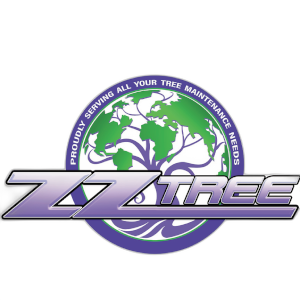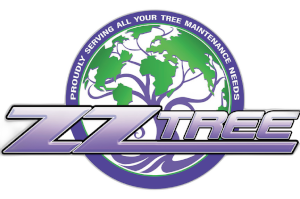While it’s true that forest trees don’t need supplemental nutrients, it’s a very different story for the trees on your property. Trees Need Fertilizer.
And it starts with fertile soil.
Why Trees Need Fertilizer: Fertile Soil Contains Life
Chances are the soil on your property is not sufficiently providing the nutrients your trees need. But why is that?
It’s not that you’ve done anything wrong. It’s just a characteristic we see in many residential properties throughout central Virginia.
The natural soils in the forest are packed full of the nutrients plants need to thrive. These soils are incredibly fertile due to the decomposition of organic material. What do we mean by “organic decomposition?” Let’s look at a simple example.
When leaves fall in the forest (or other natural habitats), microorganisms in the soil decompose the leaves. This breaks them down into organic molecules like nitrogen, phosphorus, carbon, and sulfur that become part of the soil.
Why is this necessary for healthy plant growth? Decomposition allows plants to incorporate these organic molecules into their growth.
We should mention that the decomposition process isn’t limited to leaves. The same process occurs when anything dies in the forest – plants and animals break down and fertilize the soil with the organic molecules of life.
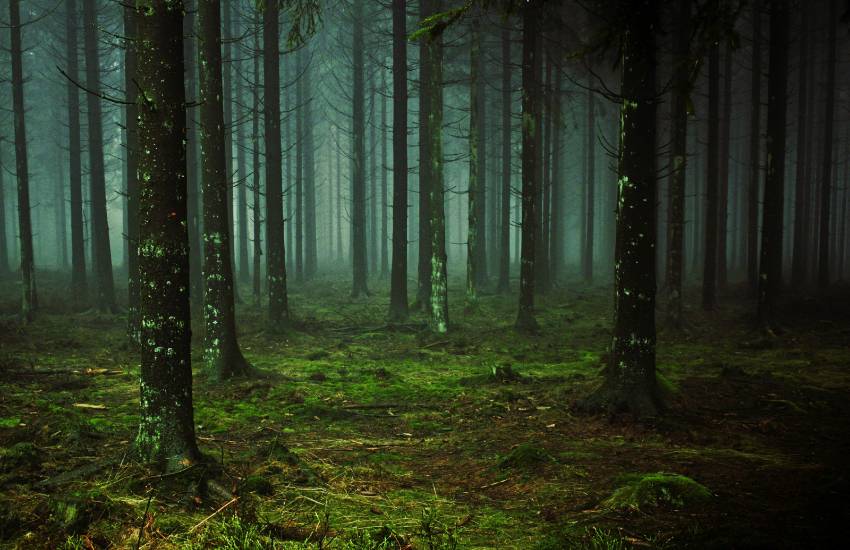
The Sad State of Your Soil
The soil in our well-kempt yards is generally terrible for trees. This is due to several factors:
The Problem with Fill Dirt
New yards, especially those in suburban neighborhoods, consist of “fill dirt.” Fill dirt is a mix of sand, clay, and broken-down rocks. The reason it’s used in residential developments is that it is physically stable and will not settle the same way organic topsoil does. This practice is necessary since you don’t want a new house built on unstable soil.
While fill dirt is good from a structural standpoint, it generally provides few nutrients for your trees and plants.
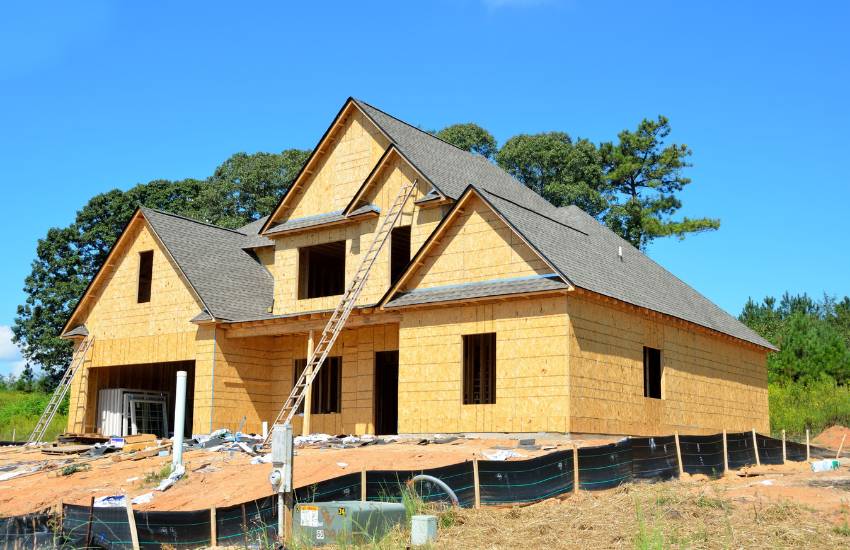
Soil Compaction Hinders Plant Growth
In addition to its low fertility, compacted fill dirt makes it difficult for plants to get established. For plants to thrive, they need to root properly, and hard, compacted fill dirt makes this impossible.
A second problem with compacted soil is poor water absorption, another barrier to healthy plant growth.
Note: You can help fix compacted soil with aeration. Mechanically aerating the soil with spiked aerator shoes or a plug aerator are two great options. Aeration breaks up compacted earth and oxidizes the soil, allowing for better root development and water absorption.
Application of Pesticides and Herbicides Kills Soil Life
Pesticides and herbicides may solve one problem, but their use can cause another. When we apply pesticides and herbicides, we not only kill pests and weeds, but we also kill off the microbes in the soil.
Again, these microorganisms are necessary for decomposition. Without microbes, organic materials won’t break down and can’t be recycled. Another reason to fertilize your trees!
How to Add the Nutrients Your Trees Need
Now that we know fertilization begins with the soil, you may wonder how you can make your soil healthy again. Fortunately, there are a few different ways you can add the nutrients that will fertilize your trees to help them grow.
Natural Mulching
You might already know that mulch is a great way to restore the nutrients in your soil. But did you know there are opportunities to use some of the things you might be throwing away?
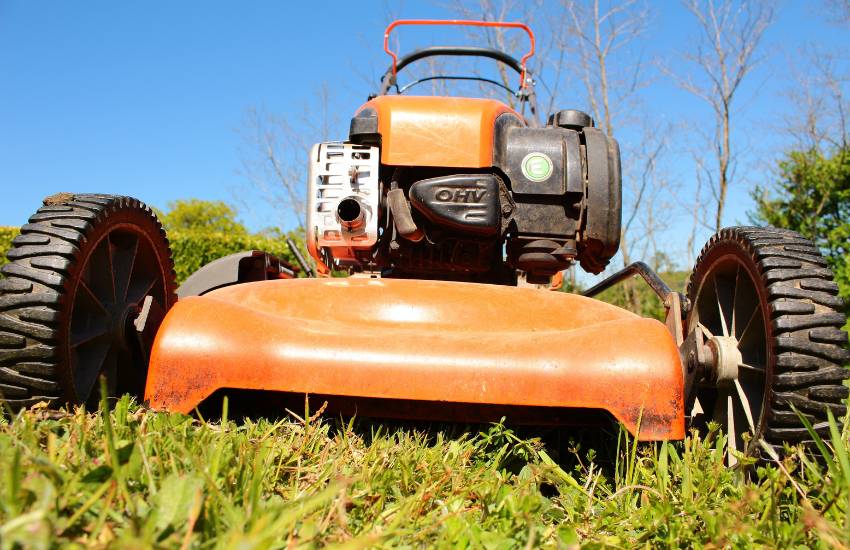
Grass Clippings as Mulch
Instead of bagging your grass clippings, you can use a lawnmower with a mulching blade to chop the grass into fine pieces. The small clippings quickly decompose and are then recycled back into your soil.
Grass clippings are a great source of organic material!
Leaves as Mulch
Whether it’s in Stafford or Lake Anna, people in Central Virginia love a clean yard, and raking the leaves in the fall is a big part of that. But instead of bagging them up for disposal, you can use the leaves as mulch to restore nutrients to your soil.
Like grass clippings, you can use a mulching mower blade to chop up the leaves into fine pieces. You can also accomplish this by using the vacuum function of your leaf blower.
When using leaves as mulch, it’s important not to layer them too thick. This will block water and air from reaching the soil, leading to stressed roots and unhealthy trees.
Also, layering leaves too deeply around a tree’s trunk can lead to rot, similar to what happens with a “mulch volcano.” Make sure you aren’t creating new problems when using your leaf mulch!
Stay Away from “Lawn Fertilizers”
Instead of natural fertilizer, you may be tempted to use a consumer lawn fertilizer to treat your property. We advise against this. Lawn fertilizers like those you find at big box stores are a poor choice for several reasons:
- Lawn fertilizers can kill soil microbes
- Lawn fertilizers provide a quick shot of nutrients that quickly leach out of the soil
- Lawn fertilizers can pollute nearby bodies of water
- Lawn fertilizers may contain heavy metals like arsenic, mercury, and lead
These issues may have you wondering what you should do to keep your trees fertilized while still protecting the environment and your loved ones. Fortunately, there’s another option.
Sometimes it’s better to trust an expert. Tree care professionals like the ones at ZZ Tree can provide a tree assessment to determine if a fertilizer treatment would benefit your trees.
While a fertilization treatment won’t help a tree in severe decline, regular evaluation can assure your trees get all the nutrients they need to stay strong and healthy!
Whether you’re in Fredericksburg, Chesterfield, Lake Monticello, or anywhere in our service area, contact us today to determine if a customized fertilization treatment is right for your trees!

About ZZ Tree
We’re a 3rd generation tree care company with deep roots in the central and northern Virginia region providing the honest, knowledgeable service you deserve. We always offer straightforward pricing, free quotes, and the responsive, caring service you deserve from a quality tree care company.
